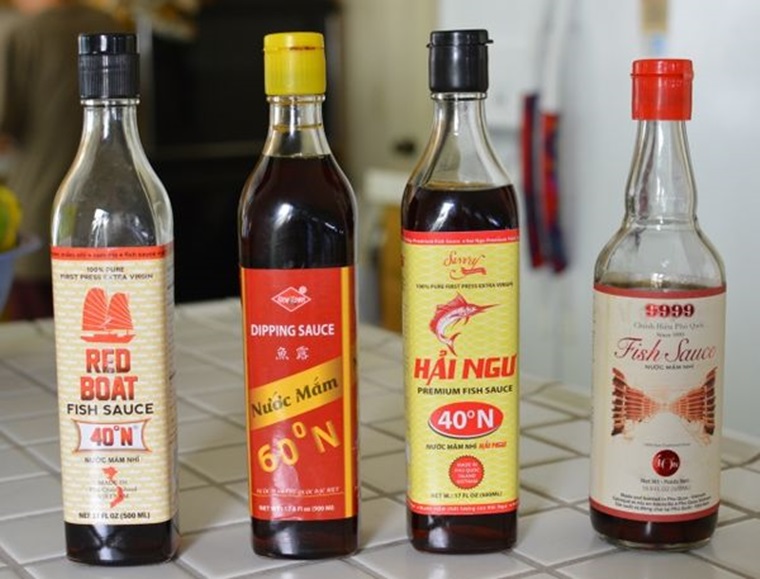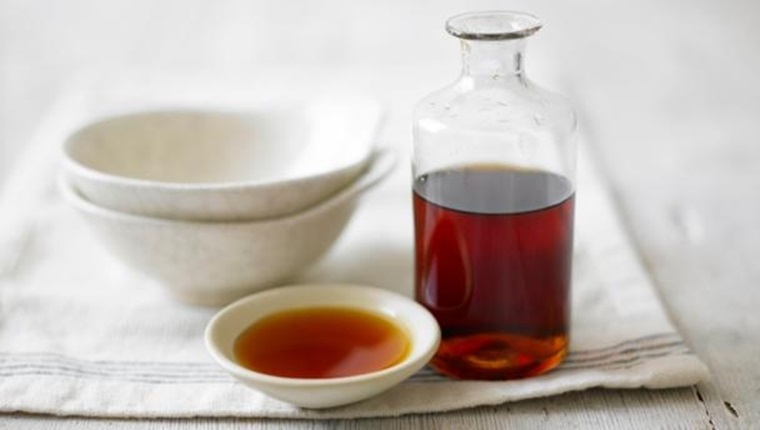Keep the Fish Sauce Bottle Tightly Closed and Store in a Cool, Dry Place
For bottled fish sauce, simply tighten the cap securely after each use. If you have unbottled fish sauce, consider using a few plastic bags to cover the mouth of the container and seal it tightly to prevent insects from getting into the sauce and to preserve its flavor.
Avoid storing your fish sauce in a damp place with mold. Instead, opt for a cool, dry, and well-ventilated area with minimal temperature fluctuations to maintain the sauce’s quality over time.

Refrain from Adding Any Ingredients to the Fish Sauce
If you choose to add ingredients like chili or garlic to your fish sauce, it’s best to consume it within a few days as the sauce may spoil quickly.
Additionally, maintain hygiene by using clean spoons and ladles when handling the sauce. Contamination from dirty utensils can lead to the spoilage of your fish sauce.
Store Different Types of Fish Sauce Separately
Fish sauce comes in a variety of types, each with its unique flavor and characteristics. Mixing or pouring different kinds of fish sauce together will alter their flavors and accelerate spoilage.
Therefore, it’s essential to store each type of fish sauce separately in distinct containers. This way, you can easily access and use the desired variety without compromising its quality.

Regularly Check the Color of Your Fish Sauce
High-quality fish sauce should exhibit colors ranging from golden to straw or reddish-brown. If you notice your fish sauce turning dark or grayish-green, refrain from consuming it.
To accurately assess the color, hold the bottle against a light source. Avoid examining the sauce in a dark area without illumination, as it can be challenging to discern its true color.

Avoid Using Fish Sauce with an Unusual Odor
If you vigorously shake the bottle and notice a significant amount of sediment when inverted, it’s a sign that the sauce is starting to precipitate. However, if filtering through a clean cloth removes the sediment and restores the original aroma, it’s safe to use.
Nevertheless, if the fish sauce emits an unusual or putrid odor, distinct from its characteristic fragrance or the typical scent associated with that particular variety, it’s best to discard it.
By adhering to these tips, you can effectively preserve the quality and longevity of your favorite fish sauce. Feel free to share your own experiences and insights on fish sauce preservation by leaving a comment below.





































